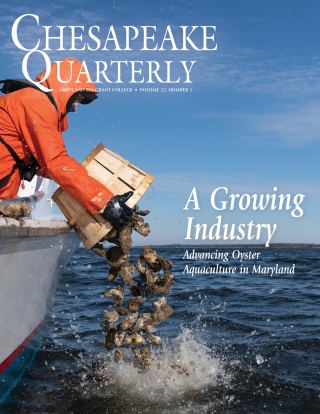Knauss legislative fellowships in Congress help build careers — and they're fun and educational. See our video and fact sheet for details.
Graduate Fellow to Study Population Dynamics of Black Sea Bass

Reed Brodnik will investigate the population dynamics of black sea bass as a Maryland Sea Grant graduate fellow. He was awarded a three-year Fisheries Population and Ecosystem Dynamics fellowship offered jointly by the National Sea Grant College Program and the National Marine Fisheries Service, a division of the National Oceanic and Atmospheric Administration.
Brodnik is one of six fellows chosen nationally for this competitive fellowship.
He is a Ph.D. student in the Marine Estuarine Environmental Sciences (MEES) graduate program, jointly administered by the University of Maryland Center for Environmental Science (UMCES) and the University of Maryland, College Park. Brodnik is a member of Thomas Miller’s research group at the UMCES Chesapeake Biological Laboratory in Solomons, Maryland, and is specializing in fisheries science.
His research focuses on the population dynamics of black sea bass (Centropristis striata) in the Mid-Atlantic Bight region. Black sea bass are important to the Mid-Atlantic region both ecologically and economically and are popular among recreational anglers. Black sea bass spawn in the coastal Atlantic Ocean, and juveniles move into the lower Chesapeake Bay during April and leave in December. Brodnik is using a suite of techniques to study questions related to the seasonal movements of the black sea bass population. His research is intended to help improve the accuracy of computer models that are used to estimate the abundance of black sea bass and inform decisions by fisheries regulators about harvest limits.
In his free time, Reed enjoys kayaking, fishing, and crabbing in the Patuxent River and the Chesapeake Bay.






